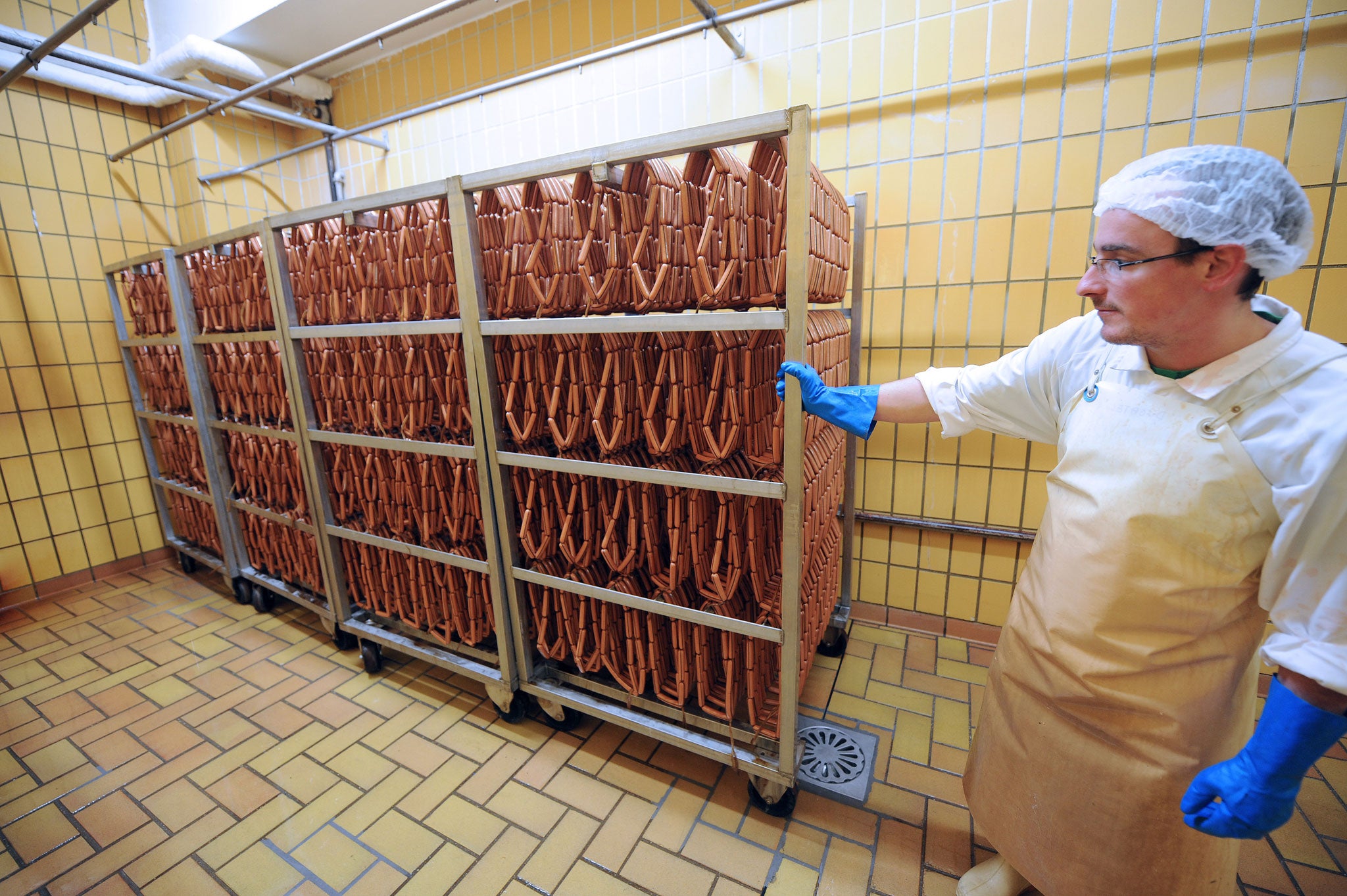Tesco's horseburgers should have prompted us to reconsider the meat industry. Instead, we laughed
It's much harder to choose sausages when you've heard exactly how the pig died


For my friend Alex James, the journey from full-time rock god to part-time farmer has been an interesting and educative one, and now he is the nearest thing in my social circle to Old MacDonald. And on his farm he has some pigs. Last year, he walked me down to their enclosure (blimey, what a mess they'd made of it!), and we fed them bags of apples. Even to the untutored eye, I could see they were handsome specimens as they busied themselves with the job in hand.
As a Jewish person, and someone who doesn't eat red meat, I didn't naturally see them as the pork chops of the future. Fast forward to just before last Christmas, and Alex tells me excitedly that they are killing a pig the next day, and would I like a delicious leg of pork (he tends to ignore my dietary requirements). I later ask him how the slaughter went. He tells me that it was the most horrific, gruesome, upsetting thing he has ever witnessed, and that he couldn't eat for 24 hours. It has not, however, put him off eating meat.
In the light of the revelations about the ingredients of Tesco's Everyday Value frozen beefburgers (£1 for eight), I would have thought that many people will be re-assessing their relationship to meat-eating this week. If nothing else, the Tesco story forces us to think about what goes into processed items like burgers (chicken nugget, anyone?) and associated health issues. I gave up eating red meat last year for Lent (I know, I'm a religious cross-dresser) for a variety of purposes - simply to see whether I could do it, but also for the health benefits, and on environmental grounds (meat production is a significant cause of environmental degradation). I continued beyond Lent, and I have kept with the programme since. I can't see any improvements in my general welfare, but it's when I hear Alex's story that I feel glad I have chosen this path.
My objection to meat-eating is not strictly an ethical one - i.e. I have no intrinsic problem with animals being killed for food - but I now feel we should be much more engaged with the exact process of how a piece of meat arrives on your plate. I'm not saying that you have to go out and kill a pig every time you want some streaky bacon, but maybe you should be prepared to do that, or at least make yourself aware of the precise method by which a pig becomes a rasher. I'm not trying to be a propagandist for non-meat-eating, but when Alex was giving me the full, Tarantino description of his pig's final moments, the blood, the guts, the screaming (the pig's, not his), it did make me think that anyone listening to this, never mind witnessing it, would make a more informed choice when next presented with a menu.
I think it is a shame that the discovery of horsemeat in the Tesco burgers has been subverted by a thousand Internet gags into a rather jokey story. It should, on the contrary, have given us serious pause for thought about the wider issues concerning meat and its production.
Join our commenting forum
Join thought-provoking conversations, follow other Independent readers and see their replies
Comments
Bookmark popover
Removed from bookmarks